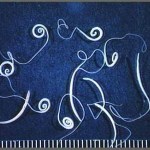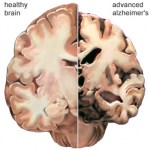treatment
Pioneering research being conducted by Dr. Gregoire Courtine (Swiss Federal Institute of Technology - Lausanne) may enable paralyzed humans to walk again someday. Through his collaborative research with a lab in Beijing China, he has developed a wireless brain implant that detects signals in the brain and then sends these signals to electrodes implanted in the lower spine (below the injured region) of the animals. This technology allows the brain signals to bypass the spinal cord injury.
Dr. Courtine is beginning trials in paralyzed humans using a simpler model of his new…
Medical research is a scientific enterprise, but, like most areas of science, nonscientific considerations have a great deal of influence over what sorts of research are funded. This is true regardless of who is funding the research. When it's the government, obviously it's impossible to avoid some degree of politics. (Indeed, politics is largely responsible for why the National Center for Complementary and Integrative Health, or NCCIH, even exists and has been studying quackademic medicine for over 20 years.) The same, however, is true when it comes to foundation funding. Some foundations…
Check out this new YouTube video describing a new study aimed at discovering how elephants resist developing cancer:
Image from U Penn.
I came across this really interesting press release from the University of Pennsylvania that I just had to share.
Despite having a close relationship with dogs for thousands of years, we are still making new discoveries about our canine friends. Drs. William Beltran (School of Veterinary Medicine), Artur Cideciyan (Perelman School of Medicine), and colleagues teamed up to study canine eyes in an effort to improve treatments for humans with retinal diseases.
Dr. Beltran was quoted as saying “It’s incredible that in 2014 we can still make an anatomical discovery in a…
Image from www.Nematode.net.Credit: http://www.latech.edu/ans/faculty-staff/liberatos-james-d/parasite-pict…
Believe it or not, scientists at Albert Einstein College of Medicine in collaboration with Coronado Biosciences are intentionally infecting people who have autism with whipworms from pigs (Trichuris suis), although generally considered non-pathogenic to humans.
For some individuals, an elevated inflammatory state contributes to repetitive and irritable behaviors associated with autism. Researchers have observed that allergic responses (measured by skin prick tests) are higher in…
A new study from Science Translational Medicine (DOI:10.1126/scitranslmed.3006534) presents data showing that tauroursodeoxycholic acid (TUDCA), a compound isolated from the bile of bears, may actually slow the development of type 1 diabetes (in mice at least). It is thought to work by reducing stress responses from the endoplasmic reticulum in the insulin-producing beta cells of the pancreas which become defective in type 1 diabetes. Use of bear bile is common in traditional Chinese medicine, and at one time led to near-extinction of black bears in China. Fortunately, synthetic versions of…
Image of camel from ukmedix news.
Researchers from King Abdulaziz University (Jeddah) have tested the effectiveness of micro and nanoshells for delivering a substance from camel urine, PMF701, thought to be a cure for cancer. These findings will be presented at the 2nd Biotechnology World Congress (Feb 18-21).
PMF701, not yet approved by the Saudi Food and Drug Authority, is currently in clinical trials. In a quote published by SciDev.net, the head of the university's tissue culture unit and the principal investigator of the project Faten Abdel-Rahman Khorshid stated, "We made a…
Image from: Alzheimer's Association
Researchers Sanchez et al. from the Gladstone Institute, University of California San Franciso and Washington University School of Medicine discovered that an FDA-approved anti-convulsant medication used to treat epilepsy (levetiracetam) can also reverse memory loss in addition to reducing other Alzheimer's related symptoms in a mouse model of the disease.
Alzheimer's is currently the most common form of dementia (memory loss) representing 50-80% of cases. It is a disease that worsens over time. Although there are available medications…
PTSD, Mental Health, and the Military: Problematic Reporting at Scientific American and ScienceBlogs
Author (and fellow ScienceBlogger) David Dobbs has an article on PTSD in the latest Scientific American, and has several related posts on his blog here at Sb. Dobbs' primary argument seems to be that PTSD is being widely overdiagnosed, in part because the condition itself is poorly defined, and in part as the result of various social and economic factors. At least a couple of other bloggers enjoyed his writing on the topic. Personally, I'm not so sure.
As many of you know, I've got some fairly significant ties to the US military. My wife has deployed twice, and has had close and personal…
This is just unbelievable. At a day care center in Arkansas, 10 kids were accidentally given windshield wiper fluid instead of Kool-Aid:
Child welfare investigators plan to talk to the owner of an Arkansas daycare center where 10 children were sickened after they were given windshield wiper fluid to drink.
"They'll go out, they'll get an explanation and they'll try to sort (it) out preliminarily," said Julie Munsell, spokeswoman for the state Department of Human Services.
Hospital officials say a staffer mistakenly put the blue liquid in the refrigerator after shopping and later served it…
Here is a lesson in why defensive medicine should be avoided: it costs a lot, it doesn't help patients, and it has the potential to hurt them. Chou et al. published a study in the Lancet showing that in patients presenting with lower back pain without serious clinical symptoms (more on this in a second) imaging does not improve outcomes.
Lower back pain is a common presentation in clinic. It is pretty prevalent with about 15 percent of Americans reporting having had it. However, in most cases it isn't anything to be alarmed about. In the majority of cases, it goes away pretty quickly…
There's a revolutionary mental health claim in a hot new article - Therapeutic Efficacy of Cash in the Treatment of Anxiety and Depressive Disorders: Two Case Studies (e-pub ahead of print).
The first case report involves a man who was laid off and lost his pension; after treatment with various SSRIs and sedatives with numerous side effects, the patient came into the office free of depressive symptoms. He claimed to have won the lottery, which fMRI brain scans [shown here] confirmed with evidence of a complete remission. In the second case, a single mother of four found her anxiety and…
When a soldier enlists in the Army, he or she takes an oath:
"I, _____, do solemnly swear (or affirm) that I will support and defend the Constitution of the United States against all enemies, foreign and domestic; that I will bear true faith and allegiance to the same; and that I will obey the orders of the President of the United States and the orders of the officers appointed over me, according to regulations and the Uniform Code of Military Justice. So help me God."
For SPC Jeremy Hall, a soldier currently stationed in Iraq, defending the Constitution involves more than his Army…





